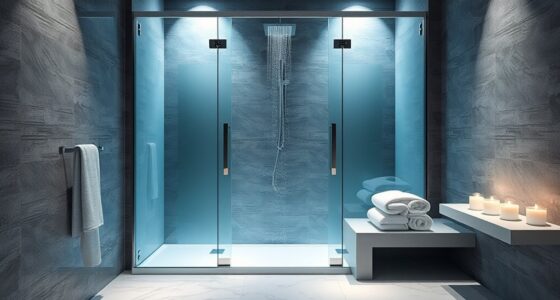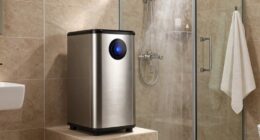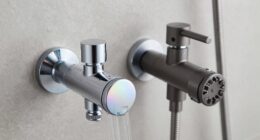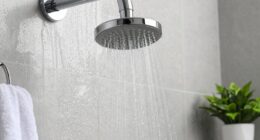Have you ever thought about whether bathroom outlets should be on their own circuit?
Well, we’ve got the answers you’re looking for. In this article, we’ll explore the importance of dedicated circuits in bathrooms, the electrical requirements for bathroom outlets, and the reasons behind the need for dedicated circuits.
We’ll also discuss the potential risks of not having a dedicated circuit and provide you with all the information you need to make an informed decision.
So let’s dive in and master the world of bathroom electrical safety together.
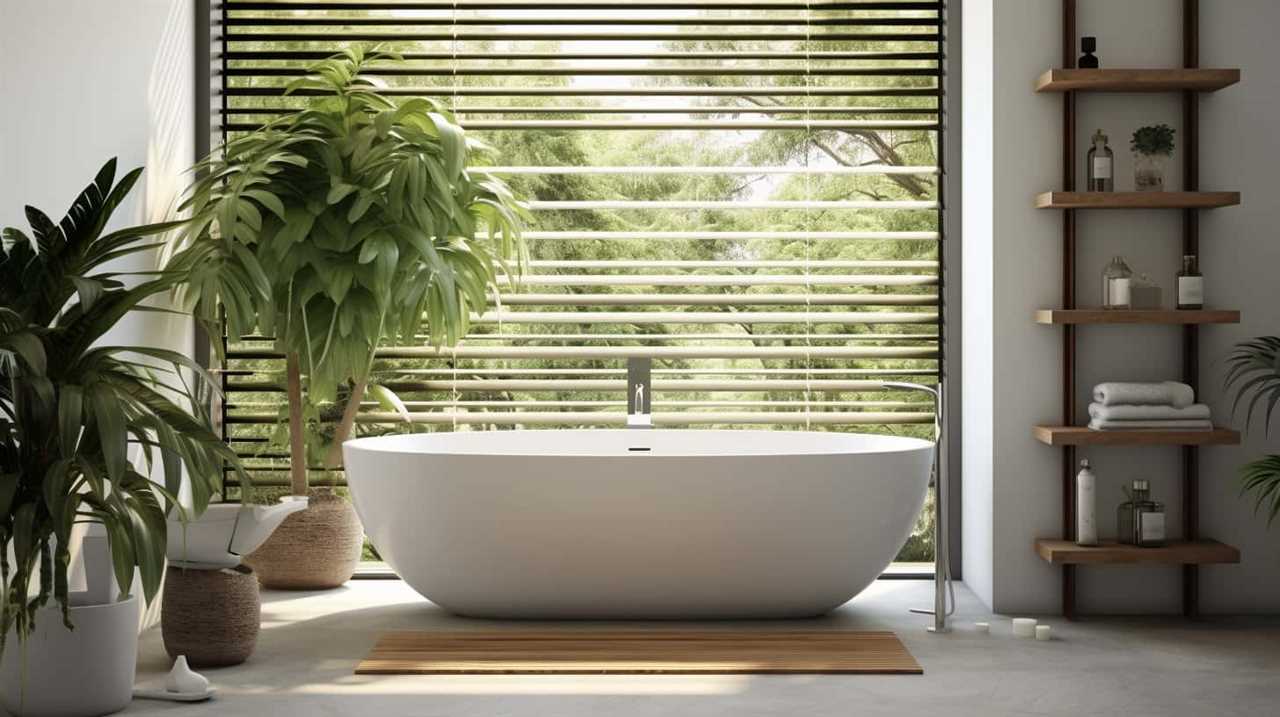
Key Takeaways
- Dedicated circuits ensure electrical safety and manage power consumption effectively.
- Compliance with building codes ensures electrical safety in bathrooms.
- Neglecting a dedicated circuit poses significant risks and safety concerns.
- GFCI protection is mandatory for bathroom outlets.
Importance of Dedicated Circuits in Bathrooms
When designing a bathroom electrical system, we prioritize the importance of having dedicated circuits. This is crucial for ensuring electrical safety and managing power consumption effectively.
Dedicated circuits are individual electrical circuits that supply power to specific fixtures or appliances in the bathroom. By having dedicated circuits, we can prevent overloading the system and reduce the risk of electrical hazards, such as fires or electric shocks.
Additionally, dedicated circuits allow for better control and distribution of power, ensuring that each fixture or appliance receives the necessary amount of electricity without compromising the overall performance of the bathroom electrical system. This is particularly important in bathrooms where high-power devices like hair dryers or heated towel racks are commonly used.
Electrical Requirements for Bathroom Outlets
To ensure electrical safety and compliance with building codes, bathroom outlets must meet specific electrical requirements. Here are the key electrical code regulations for bathroom outlet safety:
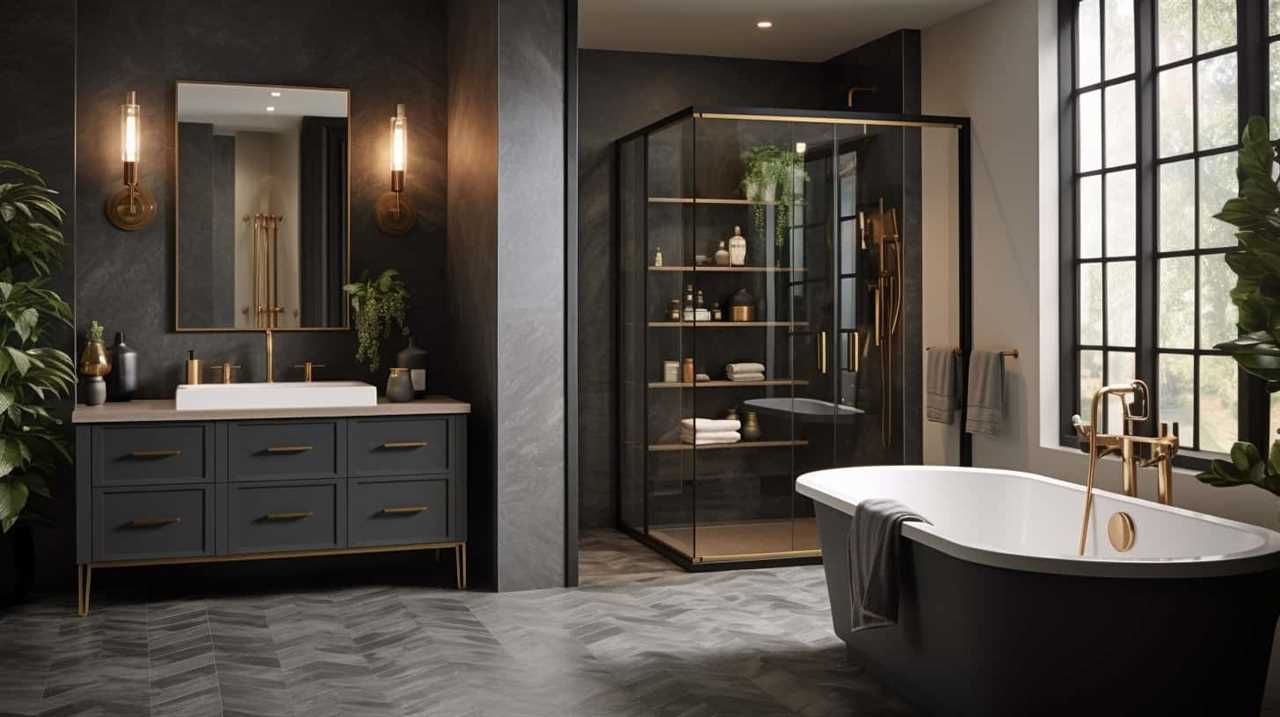
- Ground Fault Circuit Interrupter (GFCI): All bathroom outlets must be protected by a GFCI, which quickly shuts off power in the event of a ground fault. This helps prevent electric shock and reduces the risk of electrical fires.
- Distance from Water Sources: Outlets should be installed at a safe distance from water sources, such as bathtubs, showers, and sinks. This minimizes the risk of water coming into contact with electrical components.
- Dedicated Circuits: Ideally, each bathroom outlet should be on a dedicated circuit to prevent overloading and ensure that the circuit can handle the electrical load of bathroom appliances.
Following these electrical requirements for bathroom outlets is crucial for maintaining a safe and code-compliant electrical system in your bathroom.
Reasons Behind the Need for Dedicated Circuits
Now, let’s delve into the reasons behind our need for dedicated circuits in bathroom outlets.
Code compliance and electrical safety are the two main factors driving this requirement. According to electrical codes, bathroom outlets must be on a dedicated circuit to ensure proper functioning and to prevent overload.
This means that the circuit supplying power to the bathroom outlets should only serve those outlets, without any other electrical devices connected to it.
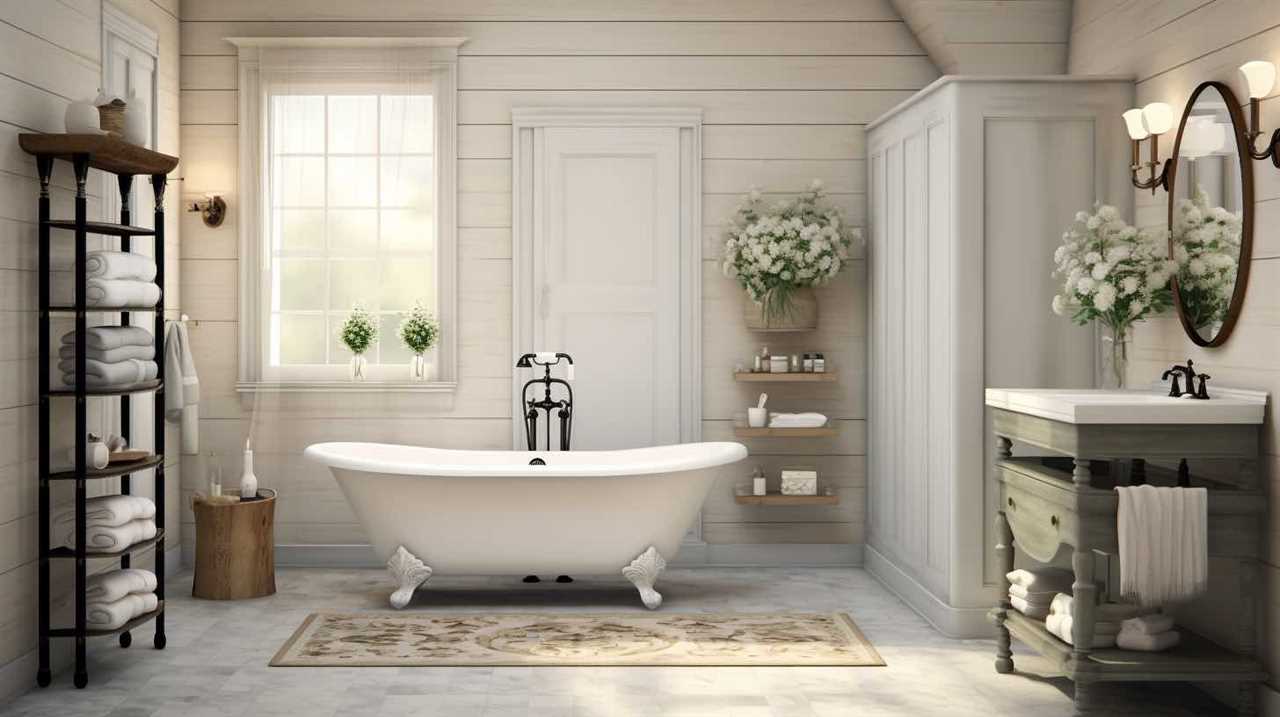
By having a dedicated circuit, you can avoid overloading the circuit and reduce the risk of electrical shock or fire hazards. It also allows for easier troubleshooting and maintenance, as any issues can be isolated to the bathroom circuit.
In the next section, we’ll explore the potential risks of not having a dedicated circuit.
Potential Risks of Not Having a Dedicated Circuit
Continuing from the previous subtopic, let’s explore the potential risks of not having a dedicated circuit for bathroom outlets.
Neglecting to have a dedicated circuit for bathroom outlets can pose significant risks and safety concerns. Here are three reasons why:
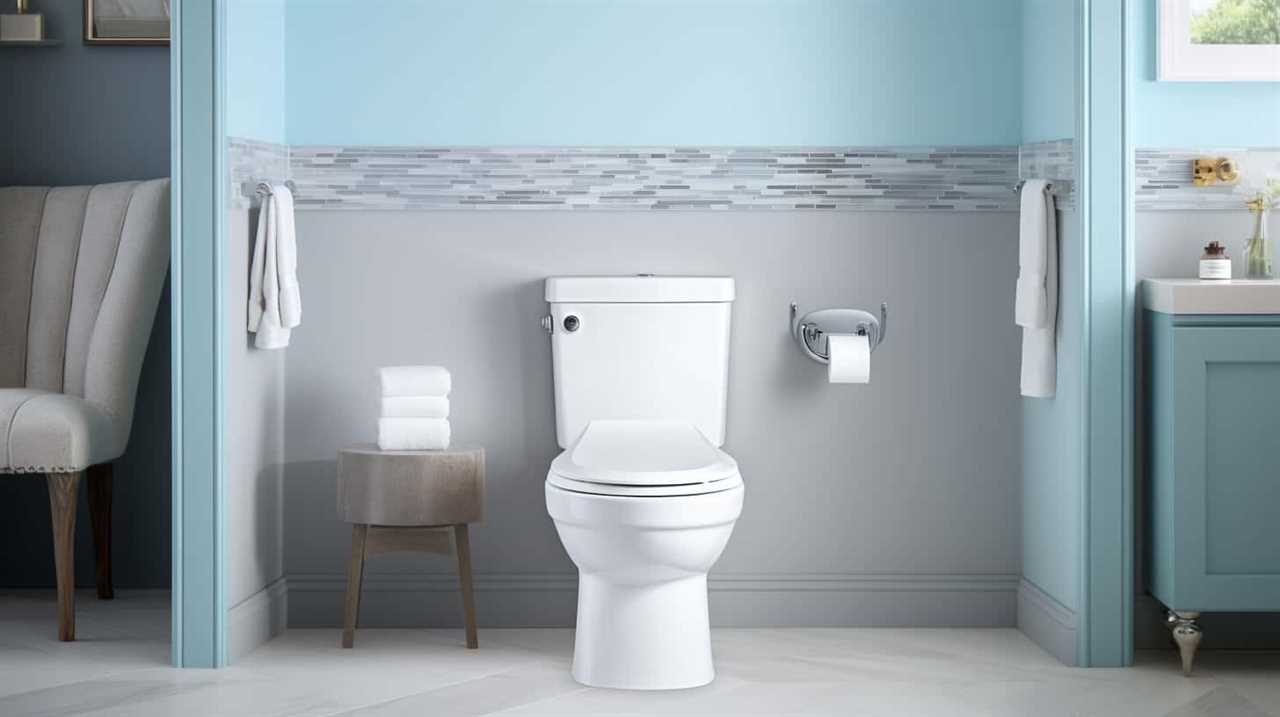
- Overloading: Using multiple high-wattage appliances simultaneously in the bathroom, such as hairdryers, curling irons, and electric razors, can overload a shared circuit. This can lead to tripped breakers or blown fuses, increasing the risk of electrical fires.
- Ground Faults: Bathrooms are prone to moisture, which increases the chances of ground faults. Without a dedicated circuit, a ground fault in one bathroom outlet can affect all other outlets on the same circuit, potentially compromising their safety.
- Inadequate GFCI Protection: GFCI (Ground Fault Circuit Interrupter) outlets are crucial for bathroom safety. Not having a dedicated circuit might result in insufficient GFCI protection, further increasing the risk of electric shock or electrocution.
Considering these risks and safety concerns, it’s essential to ensure that bathroom outlets are on a dedicated circuit.
Now, let’s move on to the next section where we’ll provide answers to common electrical questions.
Answers to the Common Electrical Question
Let’s begin by addressing some common electrical questions. One of the most frequently asked questions is whether bathroom outlets need to be on a dedicated circuit. The answer is yes, according to common electrical codes and safety measures. Having a dedicated circuit for bathroom outlets ensures that there is enough power available for all the electrical devices used in the bathroom, such as hair dryers, electric shavers, and curling irons. It also reduces the risk of overloading the circuit and causing electrical fires.
To provide a clear understanding, let’s take a look at the following table:
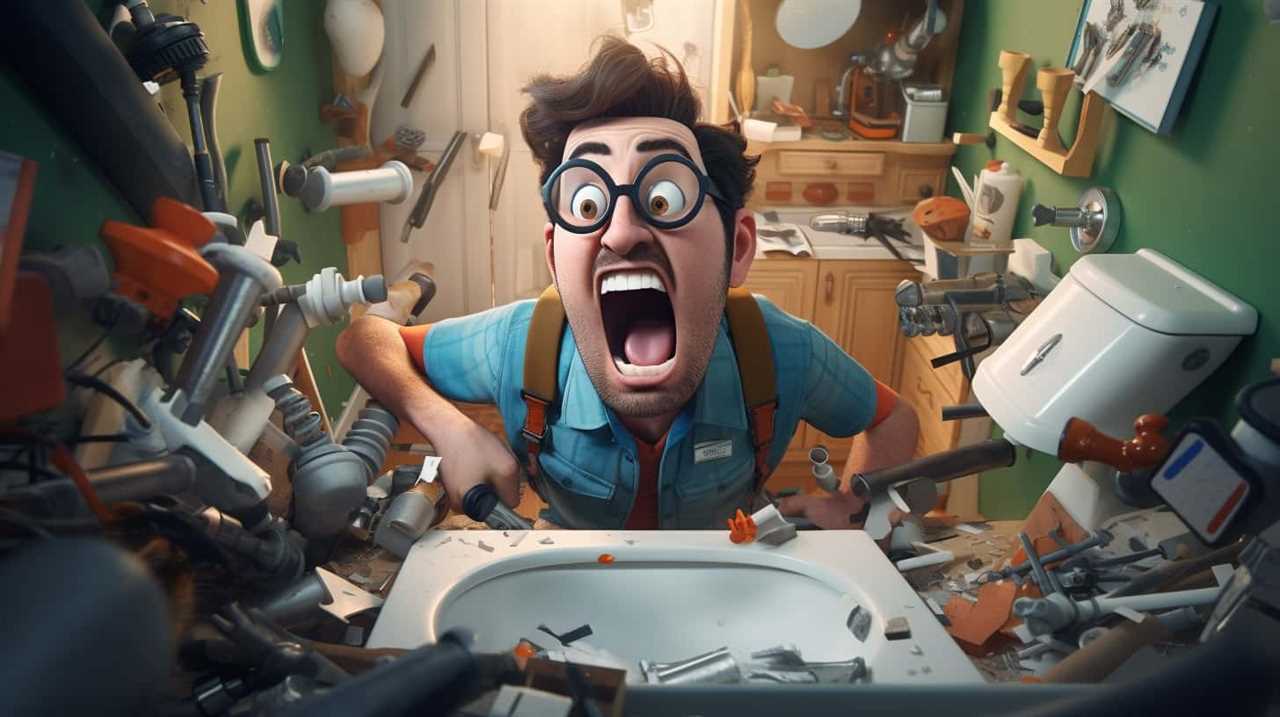
| Common Electrical Question | Answer |
|---|---|
| Do bathroom outlets need to be on a dedicated circuit? | Yes |
| Why is a dedicated circuit necessary for bathroom outlets? | To prevent overloading and reduce the risk of electrical fires |
| What are the common electrical codes and safety measures for bathroom outlets? | Having GFCI protection and AFCI protection |
Frequently Asked Questions
What Is a Dedicated Circuit and Why Is It Important for Bathroom Outlets?
A dedicated circuit is crucial for bathroom outlets due to the importance of electrical safety. It ensures that the outlet is not overloaded and reduces the risk of electrical shock or fire hazards.
Can Bathroom Outlets Share a Circuit With Other Appliances or Outlets in the House?
Bathroom outlet placement is crucial for electrical safety in the bathroom. Sharing a circuit with other appliances or outlets in the house, however, can pose risks. It’s best to have dedicated circuits for bathroom outlets to ensure safety.
Are GFCI Outlets Required for All Bathroom Circuits?
GFCI outlets are crucial for bathroom safety. The electrical code mandates their use in all bathroom circuits. This requirement ensures protection against electrical shocks and prevents potential hazards.
Is It Necessary to Hire a Professional Electrician to Install a Dedicated Circuit for Bathroom Outlets?
Hiring a professional electrician to install a dedicated circuit for bathroom outlets has its pros and cons. While it ensures safety and compliance, it can be costly. DIY options are available, but caution is required to avoid potential hazards.
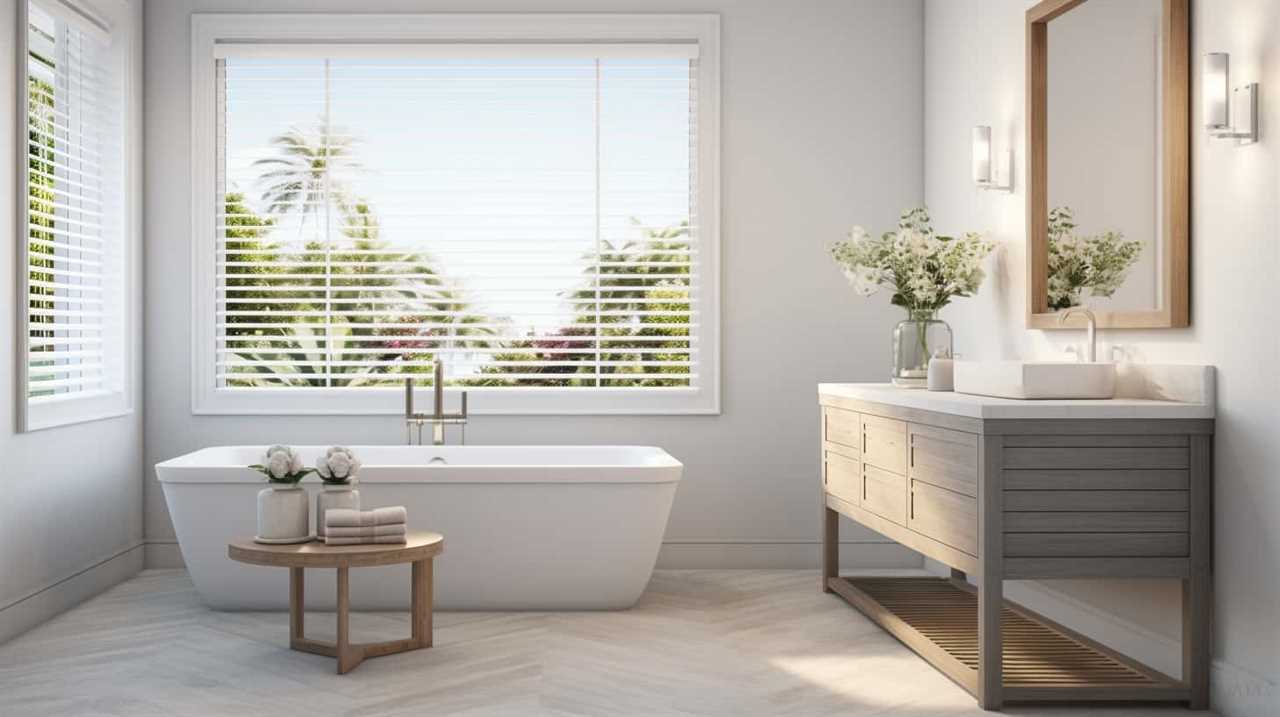
Can I Use Extension Cords or Power Strips in the Bathroom if I Don’t Have a Dedicated Circuit?
Using extension cords or power strips in the bathroom without a dedicated circuit can pose significant safety risks. It is crucial to adhere to electrical codes and regulations when installing bathroom outlets to ensure proper functionality and minimize hazards.
Conclusion
Well, folks, it turns out that bathroom outlets do indeed need to be on a dedicated circuit. Who’d have thought?
But hey, don’t fret, because there’s a reason behind this madness. Dedicated circuits ensure that your bathroom appliances get the power they need without overloading the system.
So, if you want to avoid potential risks and electrical mishaps, make sure those bathroom outlets have a circuit of their own. Trust me, your hairdryer will thank you.




